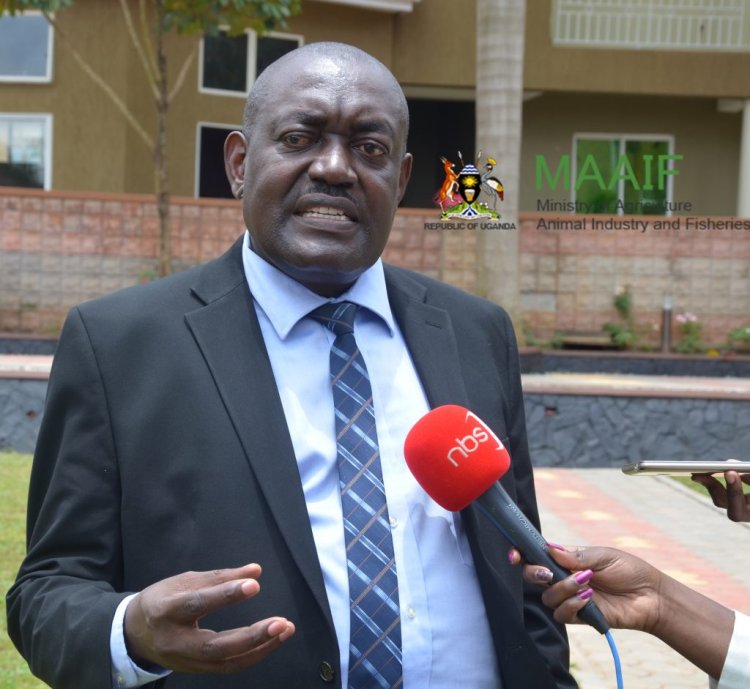Ministry of Agriculture Animal Industries and Fisheries is introducing a national framework for surveillance and emergency response in Uganda
Agriculture in Uganda provides approximately 24% of gross domestic product (GDP), generates nearly 48% of export earnings, and provides direct and indirect livelihood support to 80% of all households.

By John Kusolo
Agriculture in Uganda provides approximately 24% of gross domestic product (GDP), generates nearly 48% of export earnings, and provides direct and indirect livelihood support to 80% of all households. Agriculture is thus fundamental to the country’s economic growth and to attaining middle income status. Government has revealed plans to improve on pest control, surveillance and emergency response in Uganda according to the Commissioner Crop Inspection and Certification at the Ministry of Agriculture, Paul Mwambu . He says that Pests spread and potential economic impact depends on various factors including: the value chain affected; geographical location; management practices available at farm level and; whether the pest is categorised as well established or new:
Well-established pests: Two broad categories are identified that reflect the level of risk:
a) Likely to cause losses each season unless managed.
b) May occasionally occur in larger outbreaks. The impact of such pests can be high where there is limited farmer awareness of solutions, limited extension support, lack of practical solutions, and counterfeit or poor-quality inputs (chemicals and seed).
New pests: New and emerging pests and diseases can be serious impediments to production and the ability to respond effectively to such pests will be necessary to achieve ASSP targets. Actions will be different for the following categories:
a) Those not yet in the country.
b) Those that are newly present in the country but not yet occupying all ecologically suitable areas.
In partnership with Feed the Future Uganda, the Ministry of Agriculture Animal Industries and Fisheries is introducing a national framework for surveillance and emergency response in Uganda. Through public private partnership (PPP) as a mechanism for improving the delivery of public goods and services by partnering with the private sector while retaining an active role for government to ensure that national socio-economic objectives can be achieved (ADB,2008). Pest surveillance on the other hand is “an official process which collects and records data on pest presence or absence by survey, monitoring or other procedures. It supports phytosanitary programs and provides information for phytosanitary decision making.
The International Plant Protection Convention (IPPC) requires the National Plant Protection Organization (NPPO) to be responsible for the surveillance of plants particularly with the purpose of reporting the occurrence, outbreak and spread of pests. The Department of Crop Inspection and certification constitutes the NPPO of Uganda. In this PPP, the public good to be delivered is information on pest occurrence, outbreak, spread and management.






























































































